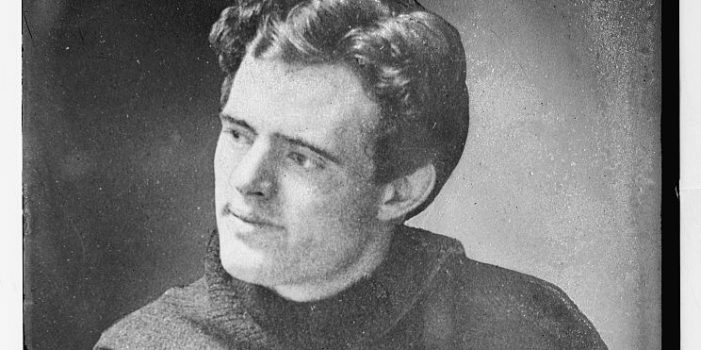On this day in 1897, Jack London sailed for the Klondike. While in the Klondike, London began submitting stories to magazines. In 1900, his first collection of stories, The Son of the Wolf, was published. Three years later, his story The Call of the Wild made him famous around the country. London continued to write stories of adventure amid the harsh natural elements. During his 17-year career, he wrote 50 fiction and nonfiction books. He settled in northern California about 1911, having already written most of his best work. London, a heavy drinker, died in 1916.
- Ad Click Here --> Civil Defense ManualNOW BACK IN STOCK How to protect, you, your family, friends and neighborhood in coming times of civil unrest… and much more!
- Ad Civil Defense ManualClick Here --> The Civil Defense Manual... The A to Z of survival. Looks what's in it... https://civildefensemanual.com/whats-in-the-civil-defense-manual/











It is quite often that I read that a famous author was either an alcoholic or a ‘heavy drinker’, not sure what the difference is. I wonder if only the drinking habits of authors is of interest or is there a higher rate of drinking amongst writers than in other occupations?
Do they drink because they are writers or are they writers because they drink? Do they write when they are sober or tipsy? Should a reader care? If an alcoholic author commits suicide in a state of alcoholic depression, is this mental state separable from their work?
In his book “On Writing”, Stephen King stated that he stayed so drunk and coked up that he doesn’t even remember writing “Cujo”. While writing “Tommyknockers” he would sit at his desk for hours with Q-tips stuck his nose to stop the bleeding from doing so much coke. He also admits that he was a raging alcoholic and drug addict when he wrote most of the early books that made him a multi-millionaire. Great writers are often tortured souls, Hunter S. Thompson being another example.
Interesting. I’ve long felt that a writing conveys more than what you see written. I remember trying to read a Ernest Hemingway book because I was told he was a great author, but I had to put the book down as I found it depressed me, even though that wasn’t the theme. “Catcher in the Rye” and “On the Road” by J.D. Salinger and Jack Kerouac portraying ‘lost’ souls hunting for meaning and relevance did not have that effect on me. I wonder what they used to influence their writing.